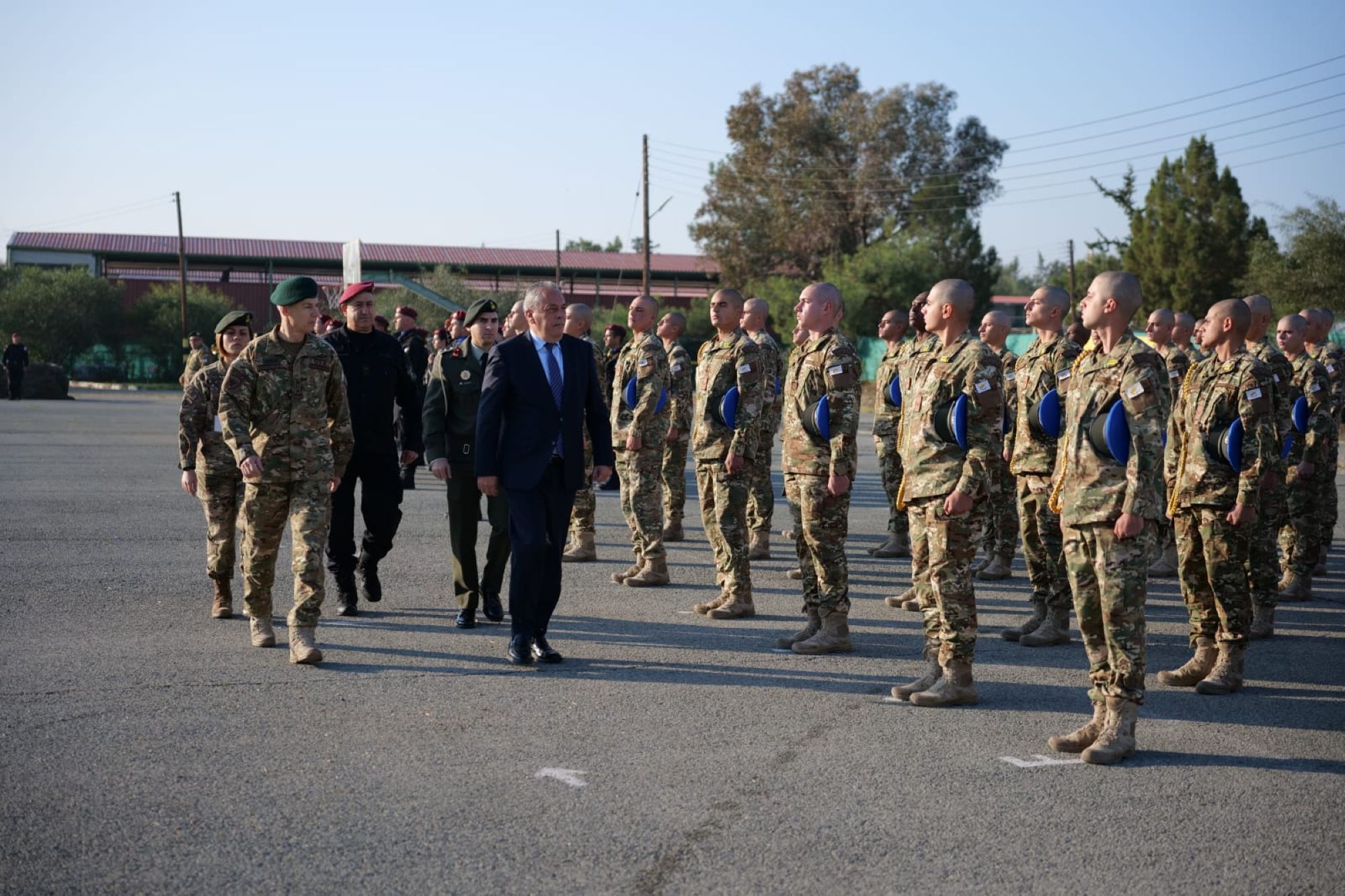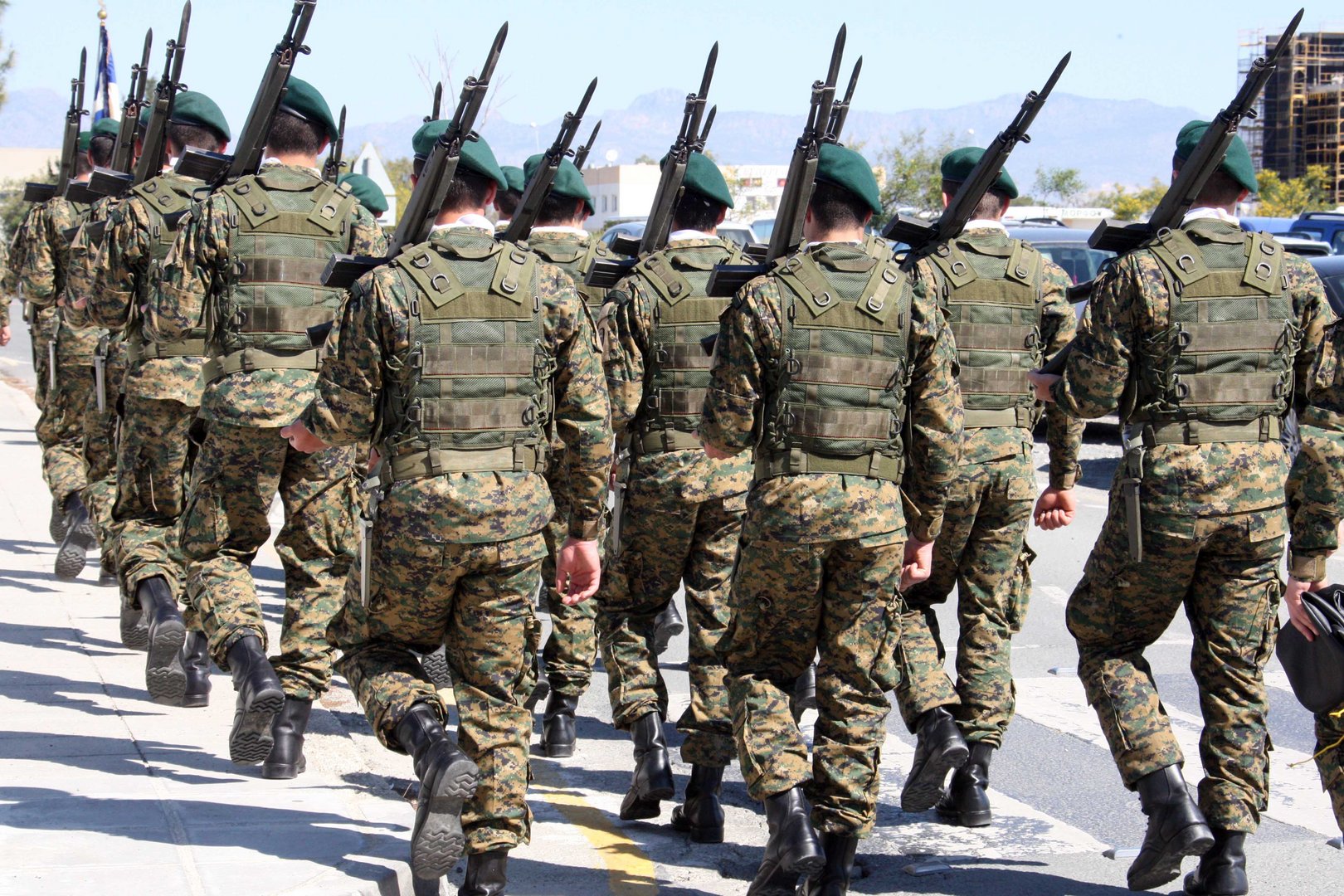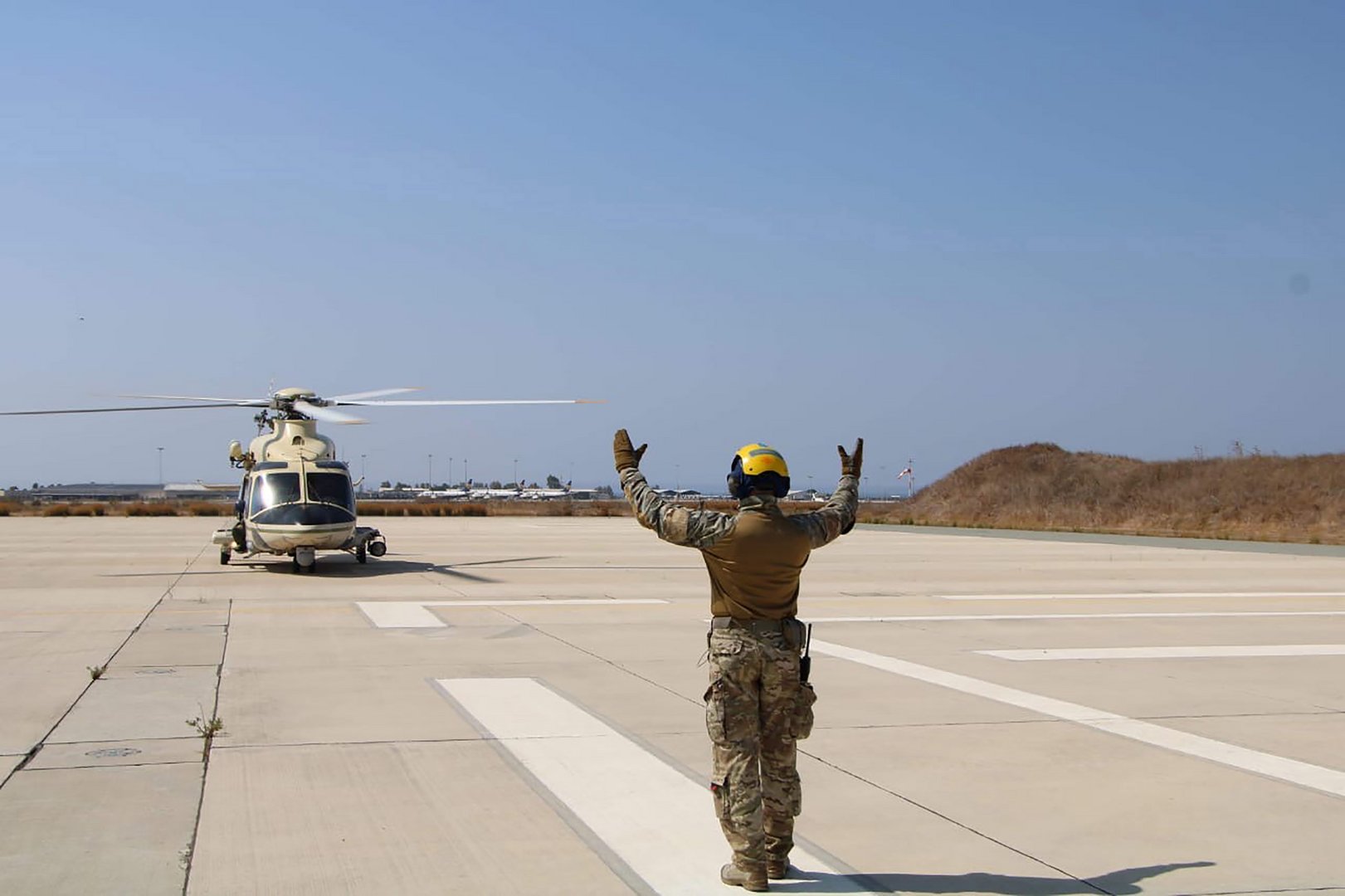The Evangelos Florakis naval base at Mari and the Andreas Papandreou airbase in Paphos are “of Cypriot interest and Cypriot ownership”, Defence Minister Vasilis Palmas said on Sunday.
He had been asked by the Cyprus News Agency about the state of planned upgrades to both bases and collaboration to this end and in the wider defence sector with the European Union and the United States, and stressed that ownership of the bases “will not be transferred out of Cypriot hands, regardless of our cooperation with the Americans and the Europeans”.
“We will continue to serve allies in terms of training, information exchange, and in broader missions, including the removal of their citizens from crisis areas,” he said.
On this matter, he highlighted Cyprus’ geographical position “as the easternmost member state of the EU”.
This, he said, “strengthens our role as a country representing the Mediterranean in Europe”, and makes it necessary for both bases to be “fully modernised so as to better respond to international requirements”.
Plans to upgrade both the Mari naval base and the Paphos airbase were publicly announced by the government at the end of last year, with Palmas saying at the time that the upgrades at Mari may cost in excess of €200 million.
He said the upgrades constitute a “large project which will be subsidised”, and both he and President Nikos Christodoulides said efforts would be made to secure funding for it from the European Union for this purpose.
Upgrades to the airbase, he said, would only cost between €10m and €14m, “depending on the outcome of the recommendations and proposals which will be made”.

Christodoulides, meanwhile, has suggested that the US may offer financial assistance to the Republic of Cyprus for the bases’ upgrades.
Military ties between Cyprus and the US have been strengthened this year, with the US having authorised Cyprus to buy military hardware directly from the United States government after joining three programmes run by the country’s department of defence.
The country was incorporated into the US defence security cooperation agency’s foreign military sales (FMS) programme, its excess defence articles (EDA) programme, and will be allocated resources under the US’ ‘Title 10’ security assistance provisions.
It is the inclusion into the FMS programme which will allow the government to purchase military hardware directly from the US government, with the country previously having only been able to buy US military hardware from private companies.
Being able to circumvent private companies will allow the government to buy weapons and other hardware at cheaper prices than before, given that the US government typically acquires its apparatus in bulk, and is thus able to sell it on for cheaper prices than what private companies would offer to a military of the national guard’s size.

Cyprus has also been strengthening its defence cooperation with the EU, with the bloc at large having taken steps in the last year to bolster its defence capabilities.
The government gave the EU formal notice of its intention to participate in the €150 billion Security Action for Europe (Safe) common procurement instrument while officials from the EU’s directorate-general for the defence industry and space(DG-Defis) were visiting the island last month.
With that notice now having been submitted, Cyprus and the EU’s other 26 member states are expected to submit a detailed implementation plan by the end of November, including details of the specific programmes under the Safe umbrella in which each member state wishes to participate.
If those plans are accepted by the EU, the procedures for disbursing money fore the procurement of hardware will begin.
The defence ministry’s procurement director Panayiotis Hadjipavlis had said last month that the government was “in contact with very friendly member states”, including Greece, over the matter, “so that we can find common programmes and thus proceed with joint procurement”.
Asked about the amount of money Cyprus will request, he said he cannot yet disclose this, “because there are still important efforts about which the commission must inform us”, including the interest rate on any given loan Cyprus takes under the instrument.
This rate, he said, is something the commission has not yet decided.
The Safe programme foresees that EU member states and allies will join forces to carry out “common procurements” for military hardware, with it envisioned that at procurements will be carried out by at least two participating countries on any given occasion.
All EU member states qualify for the Safe programme, as well as Ukraine, the four European Economic Area States – Iceland, Liechtenstein, Norway, and Switzerland – and as six other countries which have signed common defence agreements with the EU – Albania, Japan, Moldova, North Macedonia, South Korea, the United Kingdom, which signed an agreement with the EU in May.






Click here to change your cookie preferences